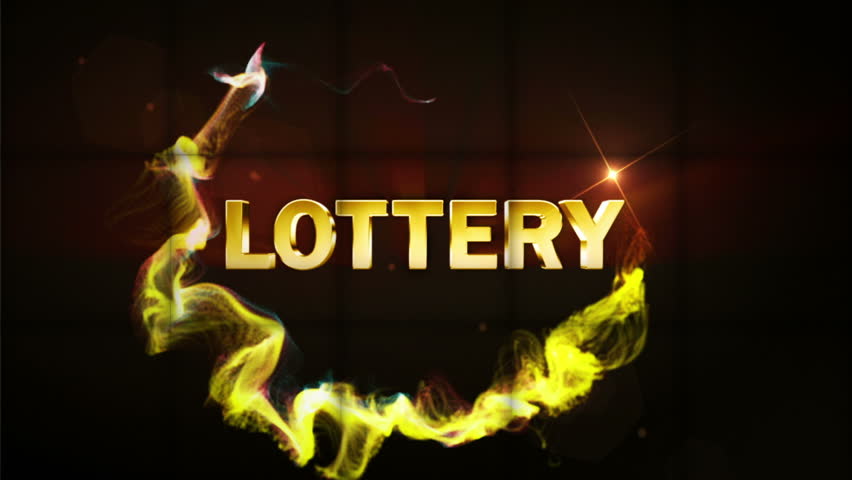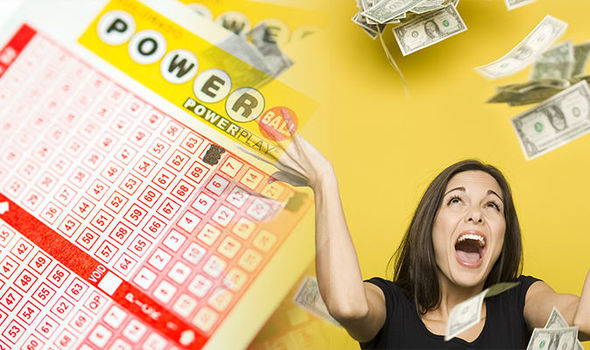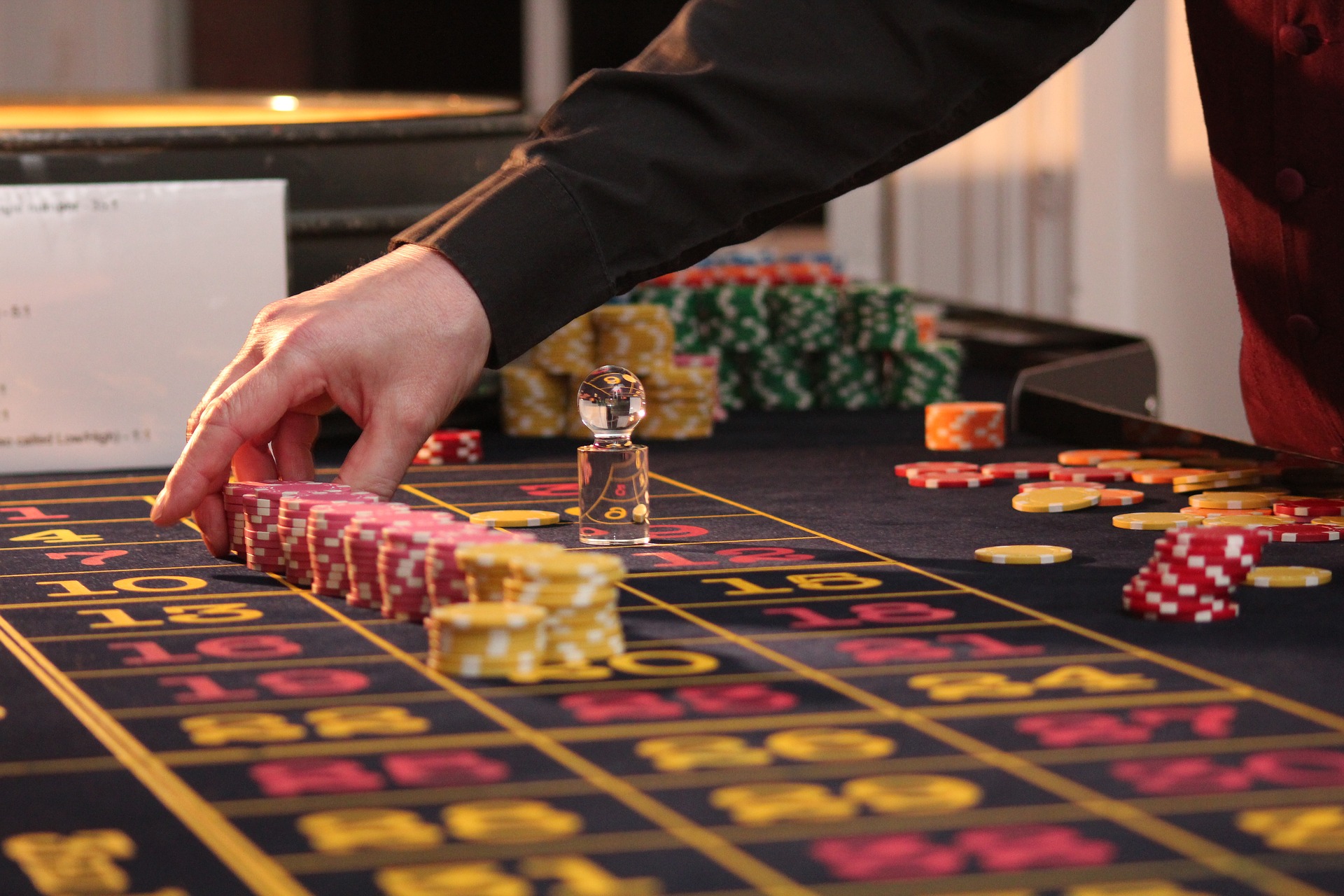What is Lottery?


A lottery is a type of gaming that entails the drawing of figures randomly to get a prize. Several authorities outlaw lotteries, but others endorse it to the extent of organizing a state or federal lottery. It's not uncommon to come across some level of regulation lottery by authorities; the most law is that the prohibition available to minors, and also sellers have to be licensed to sell lottery tickets. Although lotteries were prevalent in the USA and a few other nations throughout the 19th century, even from the start of the 20th century, many kinds of gambling, such as lotteries and sweepstakes, were prohibited from the U.S. and many of Europe in addition to several different nations. This remained so until well after World War II. From the 1960s lotteries and casinos started to to boost revenue.
Lotteries come in many formats. The prize may be fixed quantity of merchandise or money. There is risk to the organizer if insufficient tickets are sold. The prize fund is going to be a proportion of their receipts. A favorite type of this is that the"50--50" draw where the organizers promise that the prize will be 50 percent of their earnings. Many recent lotteries make it possible for purchasers to choose the numbers on the lottery ticket, resulting in the potential of multiple winners.
Historical history
The very first recorded indications of a lottery are keno slips out of the Chinese Han Dynasty involving 205 and 187 BC. These lotteries are thought to have helped to fund government projects such as China's Great Wall. In the "The Book of Songs" (2nd century BC.) Includes a reference into a game of opportunity since"the drawing of timber", which in context seems to explain the drawing of a lot.
The very first famous European lotteries were held throughout the Roman Empire, chiefly as an entertainment in dinner parties. Every guest could be given a ticket, also prizes will consist of things like dinnerware. Each ticket holder will rest certain of winning something. This sort of lottery, but was not any longer than the supply of presents from noblemen. The recordings of a lottery offering tickets available is that the lottery arranged by Roman Emperor Augustus Caesar. The funds were for fixes at the Town of Rome, along with the winners were awarded prizes in the shape of posts of price that is unequal.
Medieval history
The very first documented lotteries to provide tickets available with prizes from the kind of cash were held at the Low Countries in the 15th century. Lotteries were held by cities also to assist the poor, and to raise cash for city fortifications. Ghent, Utrecht, and Bruges' city records imply that lotteries are perhaps older. A listing dated 9 May 1445 in L'Ecluse describes raising capital to create walls and city fortifications, using a lottery of 4,304 tickets along with overall prize money of 1737 florins[1] (value roughly US$170,000 at 2014). [2] From the 17th centuryit was fairly typical from the Netherlands to arrange lotteries to accumulate cash for the weak or so as to increase funds for a myriad of people usages. The lotteries proved popular and so have been considered to be a kind of taxation. The Staatsloterij is your lottery. Even the English word lottery comes from the noun"whole lot" meaning"destiny".
The initial documented Italian lottery has been held 9 January 1449 at Milan coordinated by the Golden Ambrosian Republic to fund the war from the Republic of Venice. It had been which Lotto became common. People were able to bet the title of Great Council members, that had been drawn by opportunity, five out of candidates each six weeks. This type of gaming was known as Semenaiu or even Lotto. They started to substitute the titles of the candidate with numbers, when people needed to wager more often than twice per calendar year and lotto was created, to that both contemporary lotteries along with the Amounts game could trace their ancestry.
7 Strategies for Winning the Lottery


1. Perform the Right Games
If you all do is go to your Powerball and MegaMillions, then it's probable that you are not likely to acquire. Many countries also provide matches to play. Consider a number of those scrape games which have a probability of winning. The 1 time that I played with the lottery, for pleasure, spent $1 to get a scratch card. $ 5 was won by me -- I came out.
2. Utilize a Lottery Pool
A number of the with the most success using the huge games win since they could boost their chances by buying a high number of tickets. A lottery pool will be able to assist you .
Select a match, collect cash from folks in your workplace, or by the buddies. Purchase your tickets in bulk, and you've got an elevated likelihood of winning. Obviously, should you win, you'll need to share.
3. Start Looking for Second-Chance Games
Some countries provide you second-chance games. All these are lottery games that provide you a opportunity by winning a prize if a number of your amounts match, or in the event of your numbers fit.
Before you throw your ticket, check to discover about second-chance games. You may be amazed to find that you just won a small something.
4. Double-Check You Amounts
Occasionally, folks neglect to double their amounts. Ensure that to wait to discover in the event that you've won. You can do exactly the exact identical thing with lottery tickets which you discover.
You'll be able to double those amounts, or try to find a second-chance match. There is nothing better than having a lotto ticket to acquire.
5. DON'T PLAY THE LOTTERY
Naturally, the number one method to win the lottery is to prevent playing at the first location. Rather than spending money on lottery tickets every week, you might be investing that cash.
That is putting your money to work for you.
Naturally, you could win big. There's always the opportunity. The likelihood of winning the Mega Millions are something like one.
However, is essentially throwing away nearly $8,000 from the hopes which you are that lucky one actually worthwhile? When you might use the cash?
Even in the event that you don't spend the cash, you can at least use it to delight in something at this time, such as a fantastic novel or even some latte. You get something for your problem past a useless lottery ticket.
6. Choosing Ticket Numbers
Pick a broad variety in the amounts offered from the lottery. Men and women play with numbers that are frequent . Selecting those"lucky" figures restricts your capacity to acquire because most lotteries contain higher amounts other players have a tendency to discount. There are 31 times and just 12 weeks! You are better off choosing on a bag of large and low amounts rather than a few which are close together.
As an instance, a Mega Millions ticket begins using 5 numbers between 1 and 70. You may play 63, 15, 36, 48, and with 1. It's a special ticket which not a great deal of individuals are very most likely to select.
Consider the chances Too. A lot of folks go. In the event that you win, then you could wind up having to share the prize together.
7. Without adhering to a blueprint Select amounts that are unique.
If you are working hard to think of a number layout that is smart, you are enjoying yourself. Because lotteries pull from a selection of amounts, those routines are not very likely to appear about the winning ticket. Instead you prefer. And then you are on the ideal path Should they seem random on paper. A winning ticket is not likely to include a blueprint such as 3, 4, 13, 23, 33, 43. Additionally, it is not very likely to become short-range of amounts such as 21, 23, 22, 24, and 25.
Mix your ticket using odd and even numbers. Though the winning amounts may be strange, for example, it's unlikely.
The Lottery: Can It Be Worth Playing?


Many folks would agree the danger of at least one of these events really occurring to them is fairly slim.
Let us look at it a different way. Assume you moved in the entire world. The scene was packed to capacity. Included in the purchase cost of the ticket, you're entered into a lottery where you can win a new vehicle. Your likelihood of winning are 1 in 150,000.
Could you're sitting around the edge of the chair in that arena since they're studying the ticket amount or would you feel that, realistically, you are not likely to win? To equal the probability of winning the Powerball lottery, you may need to fill the exact arena and set all those folks and have exactly the drawing to get the 1 car. Would anyone think they may triumph in a bunch of people that big?
Still not convinced? If they had been giving a new house to 1 person and everyone in the most populated countries in the United States that could equal your odds of winning the lottery.
Independent Probability
Naturally, somebody must win the lottery, and the only means to win it's to maintain itas the advertisements say. However, what's the perfect approach? The principles of chance dictate that you don't raise your probability of winning the lottery from playing. You play the lottery, there's chance --like a coin toss at which every throw, irrespective of the amount of cries and each, comes with a one in 2 odds of landing heads. The chances remain exactly the same--at the lottery and the coin toss--no matter the frequency of enjoying.
You can, however, raise your chances by buying more tickets to the exact identical lottery drawing. Keep in mind both tickets may raise your chances to 2 in 14 million, which isn't a substantial improvement speaking from just one in 14 million. Someone would need to get plenty of tickets to increase their likelihood of winning. If someone could manage to they couldn't purchase lottery tickets to ensure a win unless he or she had been the person purchasing the tickets. As tickets have been marketed, the likelihood of winning decrease.
Who's Plays the Lottery?
The odds of winning the lottery have been extremely distant, but it does not stop people from enjoying. In general, roughly half of U.S. adults jointly will invest upwards of $1,000 a month from the hopes of hitting it rich. Time and again, as soon as a lottery has been introduced at a country, the neighborhood amount of adults who participated in gaming (that a lottery is) increased 40 percent. In certain countries, the vast majority of lottery earnings comes out of a small proportion of gamers. A Minnesota study, for example, decided that 20 percent of its own lottery participants accounted for 71 percent of lottery earnings, also in Pennsylvania, 29 percent of gamers accounted for 79 percent of earnings, based on the latest figures in the North American Association of State and Provincial Lotteries (NASPL).
What exactly? The lottery is one of those fun things as a means to hit it wealthy that we perform ? For many people, that is accurate, but for many others --often people who have the smallest sum of cash to save --for those jackpots might be critical revenue drainer playing. An quantity of lottery players appear to live according to the stats. A Gallup analysis breaks down a few data, noting that lottery players earn about $36,000 to 89,999.3 Little miracle that consumer-finance professionals say that the lottery is basically an excess tax on the bad.
Betting vs. Investing
A curious headline has been set on the homepage of this Mega Millions site on March 25, 2011, a day once the likelihood of winning flew around 1 in 175 million. The headline read, "Save for Retirement." Anti-gambling teams cried foul at this obvious effort to twist the lottery for a way to finance a individual's post-work decades and lottery officials immediately issued a statement stating they had been conducting a campaign encouraging people to dream about the way they'd utilize their winnings--maybe perhaps not supplying a fiscal plan.
Can there be a better, more rewarding, way to invest or spend the amount of money that you'd otherwise dedicate into the lottery? Let us look at the amounts. If someone spends $5 a week on lottery tickets, it still provides around $260 each year. More than 20 years (a normal long-term investment horizon for bonds and stocks ), the sum spent on lottery tickets are $5,200. Placing $260 each year into stocks bringing roughly 7 percent annually (according to stocks' historic performance) yields $11,015 following 20 decades. But in the event that you spent the cash on lottery tickets also won nothing, then you'd be out $5,200 following 20 decades.
© Copyright Luckylottery | Lotto Info